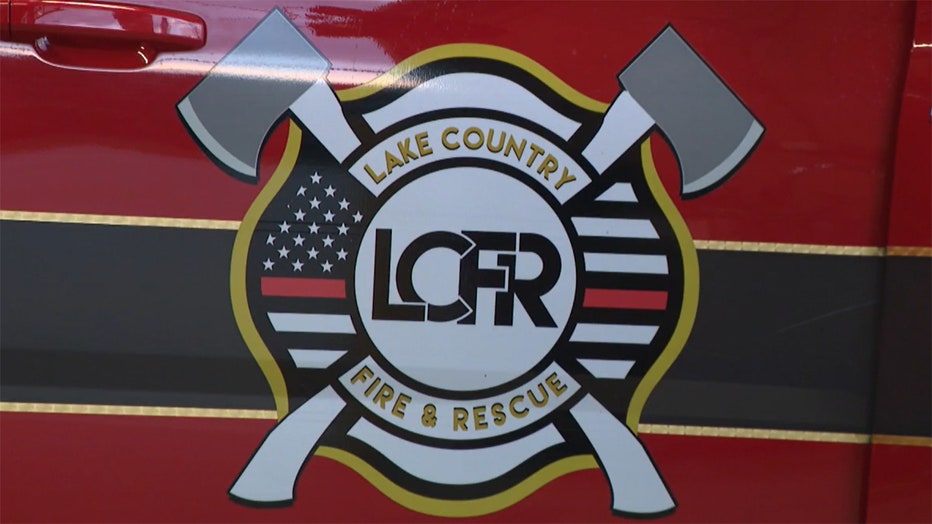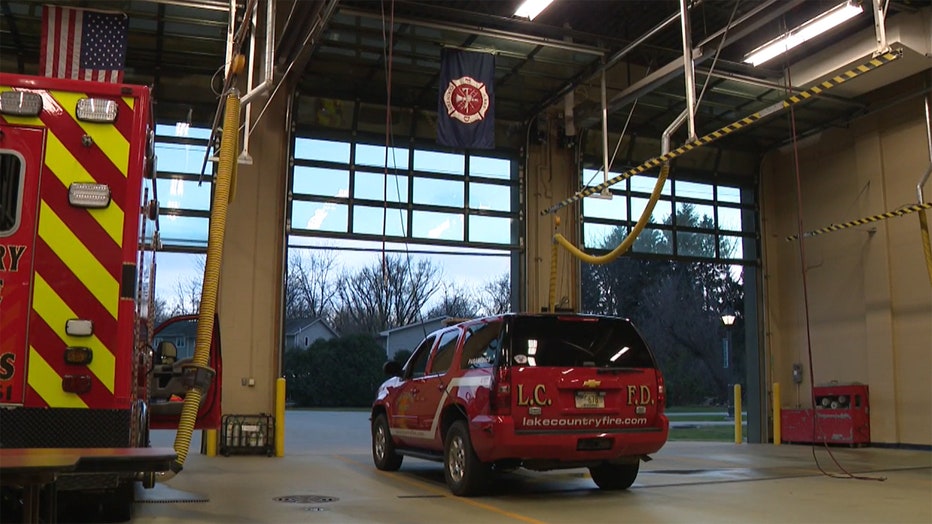Lake Country Fire & Rescue staffing shortages, chief presents plan
Lake Country Fire & Rescue staffing shortages, chief presents plan
Lake Country Fire & Rescue Chief Matthew Fennig presented his plan to take on staffing shortages and rising response times with more full-time positions.
DELAFIELD, Wis. - Lake Country Fire & Rescue is taking on a problem with a plan the chief said he's happy to see moving along Thursday, Nov. 10.
The Delafield station is one of three that Lake Country Fire & Rescue operates, but it was closed Thursday, Nov. 10 because of staffing shortages.
"This is a 24/7, 365 job," said Chief Matthew Fennig. "This is a calling, and we have a dedicated group."
SIGN UP TODAY: Get daily headlines, breaking news emails from FOX6 News
It can be more than a full-time job. In fire and rescue, dedication knows no time clock.
"I like helping people and making a difference and making their day better," said Fennig.

Lake Country Fire & Rescue
The chief said it comes down to having enough people to fill the shoes.
"This ambulance that’s supposed to be in service now is browned out, there’s no one staffing that ambulance," he said.
Specifically, Fennig said Lake Country Fire & Rescue – and other departments across Wisconsin – are facing challenges getting enough part-time, paid on-call and volunteer workers.
FREE DOWNLOAD: Get breaking news alerts in the FOX6 News app for iOS or Android.
"It’s closed fire stations, quite frankly. This station in the city of Delafield here in July, August, September and October has been closed more than 50% of the time," Fennig said.
Fennig said calls for service are going up each year, and response times are up by roughly three minutes compared to 2021.
"We’re up to almost 11 minutes response time, which is outside those standards we’re really striving to get back to," said Fennig.
Fennig has a plan that would hire more than 20 positions over the next four years. He presented it during a special meeting Thursday night to the Lake Country Fire & Rescue Board, which is composed of two people from each of the seven municipalities that the department serves.

Lake Country Fire & Rescue
The plan calls for a bigger focus on full-time positions, eventually filling the daily schedule with full-time staff members while part-time staff members fill the gaps.
For such a full-time job, Fennig said full-time positions are the way forward.
"It’s about putting the people in the trucks so that they can get to Mr. and Mrs. Smith and make a difference in their lives," Fennig said.
Adding full-time positions will cost a projected more than $3 million through 2026. There are options, including fees and referenda. With board approval Thursday night, the chief's staffing plan is moving along to municipalities to figure out that funding.

